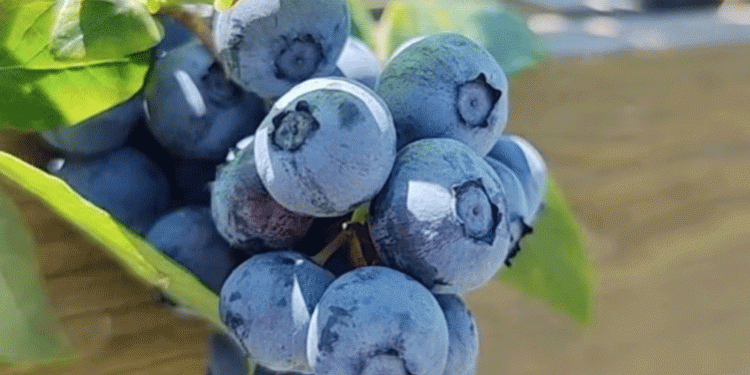In a devastating blow to Kuban’s agricultural sector, Hot Key City’s largest blueberry producer lost 95% of its 2023 crop due to unexpected spring frosts. The farm, operating since 2016, had established itself as a key player in Russia’s burgeoning blueberry market—until extreme weather intervened.
Key Impacts of the Frost Event
✔ Near-total crop loss (95% yield destruction)
✔ Forced business diversification into 80+ ornamental species, including:
- Mint
- Sage
- Juniper
- Ninebark (Physocarpus)
✔ Financial resilience tested – Farm avoided collapse thanks to 73.7M RUB ($800K) in subsidies over the past decade
The Bigger Picture: Climate Threats to Berry Production
This incident reflects a broader vulnerability in high-value perennial crops:
- Frost damage costs global agriculture $5B+ annually (FAO, 2023)
- Blueberries are particularly sensitive – Flowers damaged at -2°C (28°F)
- Krasnodar’s warming winters paradoxically increase late frost risks as budbreak occurs earlier
Contrasting Fortunes: Sochi’s Blueberry Harvest Begins
While Hot Key reeled from losses, Sochi’s growers 320 km away harvested their first 320 kg of blueberries—highlighting microclimate variability’s dramatic impact on crop outcomes.
Adaptation Strategies for Berry Growers
- Frost Protection Tech
- Wind machines (~$25K/ha)
- Overhead irrigation (forms protective ice coating)
- Thermal blankets
- Crop Insurance
- Russia’s agricultural insurance uptake remains <15% (Ministry of Agriculture, 2023)
- Diversification Models
- Ornamentals offer higher margins (30-50% ROI) but require new expertise
- Intercropping with hardier species buffers risk
Government Support & Future Outlook
Hot Key’s mayor Sergey Belopolsky emphasized ongoing subsidies for affected farms. However, reactive aid can’t replace proactive climate adaptation:
- R&D investments in frost-resistant blueberry cultivars (e.g., Duke, Liberty)
- Protected cultivation (high tunnels, greenhouses) gaining traction
- Precision weather monitoring to optimize frost responses
Resilience Through Innovation
The Kuban blueberry disaster underscores:
✅ Climate volatility is the new normal – Farmers must expect the unexpected
✅ Diversification saves businesses – But requires market research
✅ Tech adoption can’t wait – From frost alarms to drone-based thermal imaging
For berry growers worldwide, the message is clear: Invest in adaptation now—or risk joining the 95% loss club.































